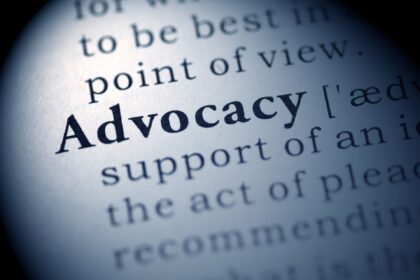
Advocacy in Romania aims to improve the legislation and the public policies to defend people’s interests but also to monitor compliance with legal obligations towards individuals and groups so that they can preserve the integrity of their rights.
What does Advocacy mean?
Advocacy is the name given to a political process carried out by an individual or by a group of individuals whose aim is to influence decisions to adopt public policies and allocate resources within political, economic and social systems and institutions.
Advocacy services can have moral, ethical or religious motives, or they can be motivated by the protection of goods of public interest. Advocacy activities include, among others, media campaigns, advertising campaigns, public speeches and debates, and research and surveys on specific topics. The activity of advocacy groups is not limited to influencing decisions and policies in the country of origin but can be extended at a transnational and international level.
Advocacy versus Lobby – Understanding the Difference
If we compare advocacy and lobbying, while the term advocacy refers to the influence of decisions at the broader public level, lobbying can be considered a particular form of advocacy that relies more on private interests. Barry Hessenius considers that advocacy focuses more on promotion materials, education, and awareness and less on persuading decision-makers directly. The regulations do not favour lobbying activities as they are considered to lead to acts of corruption. However, some people lobby professionally and come to the aid of the people or organizations that employ them.
An example of advocacy in Romania
We include here an example of a successful advocacy campaign in Romania that we find dear to us. Charley Ottley, the renowned wildlife documentary producer known for his love for Romania’s natural beauty, has launched an advocacy campaign in Romania to promote bear rights. Collaborating with Agent Green, an environmental NGO, Ottley calls for the informal adoption of bear rights, recognizing bears as sentient beings with inherent value. Their initiative involves reaching out to companies that use bears as part of their branding, urging them to contribute to bear conservation efforts.
This innovative approach aims to empower bears and highlight their importance in maintaining Romania’s rich biodiversity.
Successful advocacy organizations in Romania and campaign examples
Romania has a vibrant community of organizations, many of which advocate for social justice, human rights, and environmental protection. Three examples of the most successful advocacy organizations in Romania are Lobby Romania, FARA Charity Foundation and World Vision Romania.
If we’re about to give some examples of successful advocacy organizations in Romania, we would first think about Lobby Romania, one of the most visible and engaged organizations, which has the purpose of providing information about professional lobbying, viewed as a multidisciplinary activity. Lobby Romania was founded for information about lobbying activity, viewed as a multidisciplinary lobbying field, which requires juridical, economic, sociological and communication knowledge. In Romania, a law regulating lobbying was drafted but has never been voted on and promulgated.
Another example would be FARA Charity Foundation, a leading voice for children’s rights in Romania, advocating for policies and programs that protect children from discrimination, abuse, and neglect. The foundation’s advocacy campaigns have helped to improve access to education, healthcare, and social protection for children in Romania.
Last, we would mention World Vision Romania, a humanitarian organization that works to improve the lives of children and families in need. The organization’s advocacy work focuses on policies that address child poverty, malnutrition, and access to education. World Vision Romania has been instrumental in advocating for the passage of legislation that protects children’s rights and promotes their well-being.




